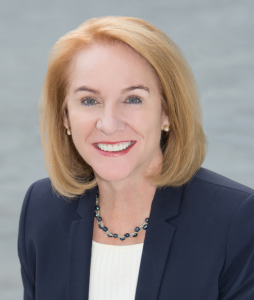By Mahlon Meyer
Northwest Asian Weekly

Mayor Jenny Durkan
Facing a crisis in the city she described as “unprecedented,” Seattle Mayor Jenny Durkan offered a number of promises, but was vague in providing details.
At a virtual town hall meeting on July 27 for residents of Southeast and Central Seattle, she bemoaned the state of the city’s challenges and offered to invest in particularly hard-hit communities. Citing the pandemic, economic losses, and unrest over civil rights, she underscored that the city was facing a triple whammy unseen in its history.
“Our city has never faced the challenges it is facing today,” she said.
In response, Durkan vowed to continue measures, such as halting evictions and providing grocery vouchers, that the city has already undertaken.
It was not immediately clear why she did not provide specific dates for her proposals. For instance, a moratorium on evictions will expire on Aug. 1, but Durkan did not say when she would issue a new order. However, Gov. Jay Inslee last week extended the eviction moratorium through Oct. 15.
The effects of the COVID-19 outbreak have hit marginalized communities the hardest. And Durkan said the city would invest $100 million in Black, Indigenous, and People of Color (BIPOC) communities. The city should emerge from the pandemic as a place where economic disparities are not as glaring as they are now, she said.
“It’s wrong that a kid growing up in South Park should have a lower life expectancy than a kid growing up in Laurelhurst,” she said.
Community partners would also need to assist the city in educating their constituents about proper measures to contain the coronavirus, she said. Trusted leaders of those communities will have an easier time providing guidance about proper protocol as well as distributing masks, added Durkan.
“We can provide face coverings if you are a community-based organization,” she said.
Another change will be a newly imagined police department. But Durkan rejected a simple 50% cut. In perhaps the clearest articulation of a new vision for the police department, she and other officials discussed the new changes.
Currently, if police respond to a non-urgent call involving a person having a mental health crisis, there are only two options—take the person to jail, or to Harborview.
Under the new proposed guidelines, a medic and a social worker would respond to such a call. A person in crisis could then be taken to a homeless shelter, provided access to food, or assisted with obtaining housing.
At the same time, the meeting also appeared to be an opportunity for Durkan to showcase some accomplishments during a hard period. A recent King 5 News poll found that nearly one-third of respondents believe she should resign. At the same time, she has been fending off formal recall motions. Before that, she and Police Chief Carmen Best revealed tensions after both denied having issued the order to abandon the East Precinct when police summarily vacated a central part of Capitol Hill, leaving it to demonstrators and rapidly escalating violence.
City officials offered charts and statistics showing accomplishments, including an increase in beds for the homeless and two free testing sites for the novel coronavirus, with a third coming shortly—although the exact time was not given.
“We’re working hard to identify new locations in South Seattle for free testing,” said Fire Chief Harold Scoggins.
The arenas providing increased beds for the homeless comprise Exhibition Hall, Fisher Pavilion, SW Teen Life Center, Garfield Community Center, Miller Community Center, and hotels.
COVID-19 transmission has been flat in these new communities opened up for the homeless, despite its increase in the population at large.
Durkan also took the opportunity to defend her efforts outright.
For instance, in talking about the devastating effects the pandemic is having on small businesses, she said it may not be widely known that Washington state’s constitution prohibits the city from giving direct funds to residents. To get around this restriction, the city has handed out “tens of thousands” of grocery vouchers.
And it has partnered with “outside philanthropy,” she said, without giving any details.
Reporters were cautioned against asking questions, and told instead to direct any queries to the mayor’s office, although the meeting ended after 6 p.m. when municipal offices are closed. The Northwest Asian Weekly was unable to get questions answered before press time.
The tone was also defensive, if not quietly frustrated, about the recent police reaction to new demonstrations. Best was scheduled to speak, but was called away by urgent business and was replaced by Chris Fisher, chief strategy officer at the Seattle Police Department (SPD).
Acknowledging that protests have been a “historical change agent,” Fisher contended that the SPD was already ahead of the national curve in terms of police reform.
“We all want to see positive change,” he said.
Speaking quietly, but with apparently large circles under his eyes, Fisher expressed frustration with the blame apportioned out to the police.
“Officers have been asked to pick up too many pieces from failed systems,” he said. During the recent weekend protests, 59 officers were hurt and two required hospitalization. Protesters hurled explosive devices at officers. Some of the protestors were also hurt.
It was not entirely clear why Durkan chose the timing of the meeting, except for her saying that marginalized communities were being hit the hardest by illness and economic catastrophe.
Communities invited to attend included the Chinatown International District, Capitol Hill, and the Central District.
Mahlon can be reached at info@nwasianweekly.com.


